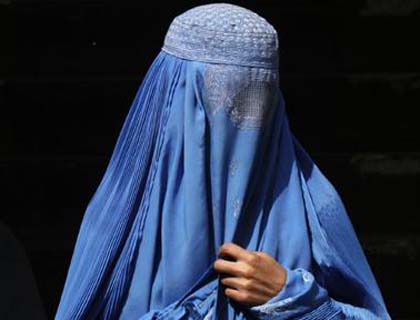Dauntlessness is not man’s attribute, given he can suppress and duress the hapless daughter of eve –despite being reciprocated in the gentlest way. This is not to render man at fault; instead laws safeguarding women’s rights are minimally applied. Every alternate day endless tales of butcheries, physical torture, harassment and sexual assaults are surfaced where women render prey to flawed cultural practices, biased laws and Sharia doctrines. We turn deaf ears to the hapless cries, blind eyes negligent to see the magnitude of mental sufferings she endures while getting out to earn a livelihood, numb to realize the numerous pain of gender based victimization she bears frequently, because of fallacious socio-religious structure based on irrational biases. It reflects women are coerced to repression after being found hapless and voiceless.
Women constitute half of Afghan population. They can play foundational role in formation and development of the society for upcoming generation. They owe equivalent vigor to outstand and undertake the societal undertakings appropriately. Regretfully, they are deemed and treated second class citizen; meant to plague their innate capabilities rendering them dysfunctional. If properly educated and socialized they can be turned into valuable human resource earning enormous riches for poverty stricken country. If shun in constant denial they will degenerate without productive contribution.
Formerly, the UN Assistance Mission in Afghanistan (UNAMA) and the Office of the UN High Commissioner for Human Rights (OHCHR) released its report identifying the factors that enable or hinder women’s access to justice in cases involving violence. It documents the individual experience of 110 Afghan women victims of violence who sought justice though the judicial system and though non-judicial mechanisms, including mediation, across the country between August 2014 and February 2015.
The majority of the cases in the report were brought to mediation, a process to resolve a dispute through mutual agreement and reconciliation between parties, and only five per cent of the resolved cases resulted in criminal prosecution and sanctions against the perpetrators. Women’s preference for mediation is influenced by several factors, such as perceived deficiencies in the criminal justice system, including allegations of corruption, abuse of power and lack of professionalism, as well as cultural and family pressure. Interviewed women also stressed the value of mediation as a swift means to have their case processed.
Violence against women in Afghanistan have kept women very far away from education which is one of the reasons that usually subjected them to extensive discriminations because they are kept ignorant of their fundamental rights. The choices of Afghan women are extraordinarily restricted; the family decides the fate of their lives. There is little chance for education, little choice about which she marries no choice at all about her role in her own house. Her principal undertaking is to serve her husband's family.
The report also found that the majority of women were largely concerned with obtaining redress of a civil nature, such as divorce, custody settlements or living in a safe environment rather than seeking criminal sanctions, fearing the negative economic and social consequences they might generate for them and their families.
The report notes that the existing legal framework and court adjudication process in Afghanistan provides limited options for women facing violence, with its focus on the imposition of criminal penalties on perpetrators and the absence of legal provisions available for obtaining restraint orders and civil remedies.
The role of women in peace, reconciliation, rehabilitation and nation building must not be repudiated. They must be heard by granting maximum if not equal opportunities in societal making. The upcoming government keeping his promise should take bold and immediate measures undoing all such developments eroding and restraining the capabilities of women to work for the good of society provided empowered women can effectively contribute in the development of the country.
The report also highlights women’s economic dependency and the weak legal protection of their property and other rights as key factors impeding survivors of violence from taking action against abusers. For example, a woman who complains to the authorities about violence and is forced to leave the marital home that is her husband’s property often has nowhere to go.
Afghan authorities are continuously called to take, much greater steps to both facilitate reporting of incidents of violence against women and launch immediate investigatory cells in districts and division level facilitating the prosecution. As long as women and girls in Afghanistan are subject to violence with impunity, little meaningful and sustainable progress for women’s rights can be achieved in the country. Ensuring rights for Afghan women – such as their participation in public life, including in the peace and reconciliation process and equal opportunities in education and employment – requires not only legal safeguards on paper, but critically, speedy and full enforcement of the Elimination of Violence against Women (EVAW) law.
The report recommends that the Government of Afghanistan adopt legal, institutional and policy reforms to better protect Afghan women facing violence. These include expanding the civil remedies available, strengthening the capacity of the criminal justice system to protect survivors, regulating mediation through common standards, and applying the 2009 Law on the EVAW law. The report also suggests recruiting and training staff – both women and men – to treat survivors of violence with professionalism, dignity, sensitivity and respect.
It is stressed that major crimes of violence against women must be prosecuted and adjudicated through the criminal justice process and not mediated, in accordance with Afghan laws and the country’s international human rights obligations.

